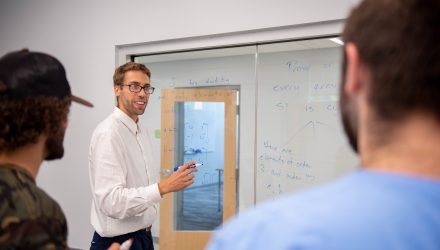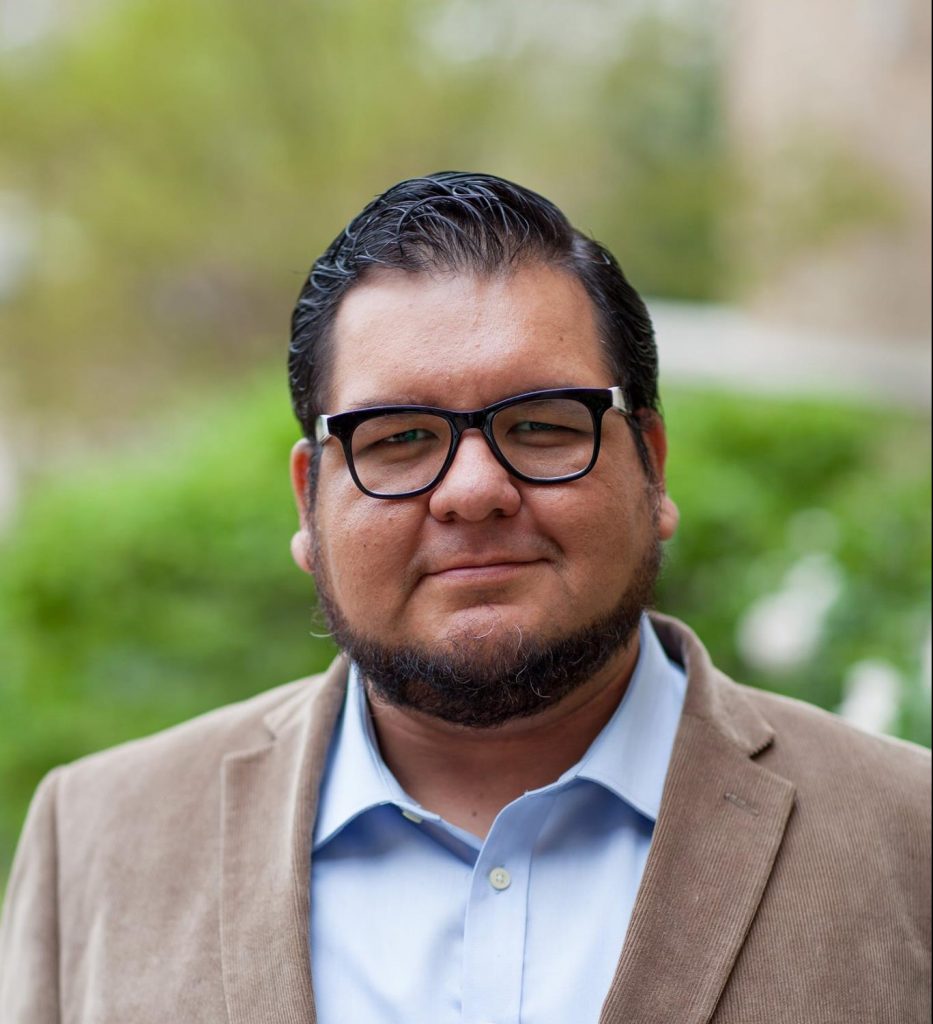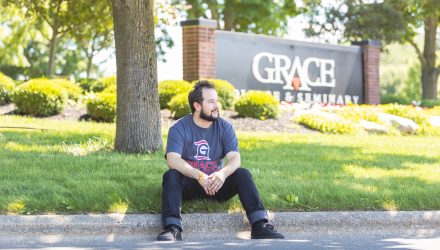
A Conversation with Humanities Professor Cesar Soto

Humanities is the study of what it means to be fully human. It encompasses the study of human expression, experience, and flourishing, at both the individual and societal level. So, if you’re looking for a college of humanities, you’ll want to meet the people who will guide you in the pursuit of what is good, beautiful and true.
Grace College is proud to welcome Professor Cesar Soto to our Department of Humanities. Cesar Soto grew up in California and came to college in Indiana to pursue his doctoral degree in English Literature at the University of Notre Dame. His decision to go to college of humanities has now led him to Grace College where he will be teaching Principles of Writing, Effective Writing, Global Perspectives, and a Classics of World Literature Private Tutorial.
Why are you interested in teaching writing courses?
Devoting time to writing and revising has led to significant professional and personal rewards. Learning how to write an honors thesis gave me enough confidence to apply for an M.A. When I applied to Ph.D. programs, I had enough confidence in my writing abilities to produce competent, if not outstanding, Statements of Purpose and Personal Statements. I managed to get into seven Ph.D. programs and some of these schools communicated that my strong statements had put me over the line. There was enormous trepidation when I applied, but the years of writing practice gave me just enough confidence to boldly apply.
I have started to enjoy writing as a craft, as a God-given talent, not just as a professional tool. Being able to articulate to myself what I think and feel through writing — and, hopefully, with a little style too! — and constantly reflecting on finding what Flaubert called le mot juste (the right or exact word) are all goals I enjoy in and of themselves.
So, I want to help students acquire the belief that writing offers both kinds of rewards.
Why did you decide to go into English Literature?
I love narrative. I wanted to major in something that would allow me to deeply consider how stories achieve certain emotional effects and circulate in the world. I wanted to better manage the emotional effects I experienced while reading so that I could go from being a fan reader to a critical reader who could detect with precision how stories were constructed and how they advanced certain cultural messages, intentionally or not. Of course, being a scholar-critic, I am still energized by the enthusiasm from also being a fan!
When you majored in English Literature as an undergraduate, did you see yourself obtaining a terminal degree at a college of humanities?
Not at all. Though always a reader, I kind of stumbled upon English, after changing my major four times. Then my professor for Literary Theory — Ranita Chatterjee — turned out to be a spellbinding teacher and a Romanticist, and so I pursued both Theory and Romantic-era Literature. During the course of this, I began to dream of being a professor. The rest is history.
What is your most prized accomplishment in the field of humanities?
I have won two Ford Foundation Fellowships and participated in a National Endowment for the humanities (NEH) Seminar in Iowa last year. Besides the generous funding entailed, these awards are given to promising, emergent scholars. I was also selected as an Alternate for a Fulbright to Ireland in 2016. Although I did not end up going, it was gratifying to have had my research pass muster through three boards of evaluation: two in the states and one in Ireland. I was given what is essentially ‘second’ place. It made me feel that my work had traction.
What is your favorite book to study?
You’re asking a World Literature professor what their favorite book to study is! This will be hard.
I can virtually read anything that the biblical scholar/theologian Ben Witherington III has written. I always come away enlightened and more inclined to renew efforts to serve God better. One of my favorites is his The Indelible Image where he sets forth a theology of the entire New Testament, by articulating what each book specifically says about ethics (or how we ought to treat one another as Christians). I appreciate his vast socio-cultural knowledge of first-century Christianity and Judaism.
As for a literary work, any book written by Charles Dickens or Jane Austen. Let’s say Bleak House for Dickens and Mansfield Park for Austen.
How does your faith inform the way you teach at a college for humanities?
The following is an excerpt from Soto’s Philosophy of a Christian Liberal Arts Education.
“But being that the imago dei was disfigured but not destroyed in humankind, the endurance of this God-yearning is evident in the creative acts of the artist, particularly in imagining other worlds. Whether we discuss Science Fiction and the veiled political critiques it makes of the present world, or the palpable dissatisfaction and current of angst that vibrates through modernist fiction, students are made aware that artists feel, and variously give shape to, this desire. They express what we as Christians know is true—that the world is not as it should be, that life as it is immediately given somehow lacks in plenitude, however hidden this insight is from ordinary awareness. At the affective level, then, we can track how artists long for a better world and thus attempt to create new ones or critique the one we inhabit. Tracing these emotional resonances in literature builds up the faith of students because as Christians we affirm our belief that the kingdom has been inaugurated (and is yet to come). And we are able to retain that which is good in each text, as well as detect error and its pernicious influence.”
Professor Soto is eagerly looking forward to teaching at Grace this coming fall — and we are equally excited to have him! Like Soto mentioned, so much of what makes an effective college for humanities are passionate and energetic professors. Get to know some of our other humanities professors here.
Previous Post

